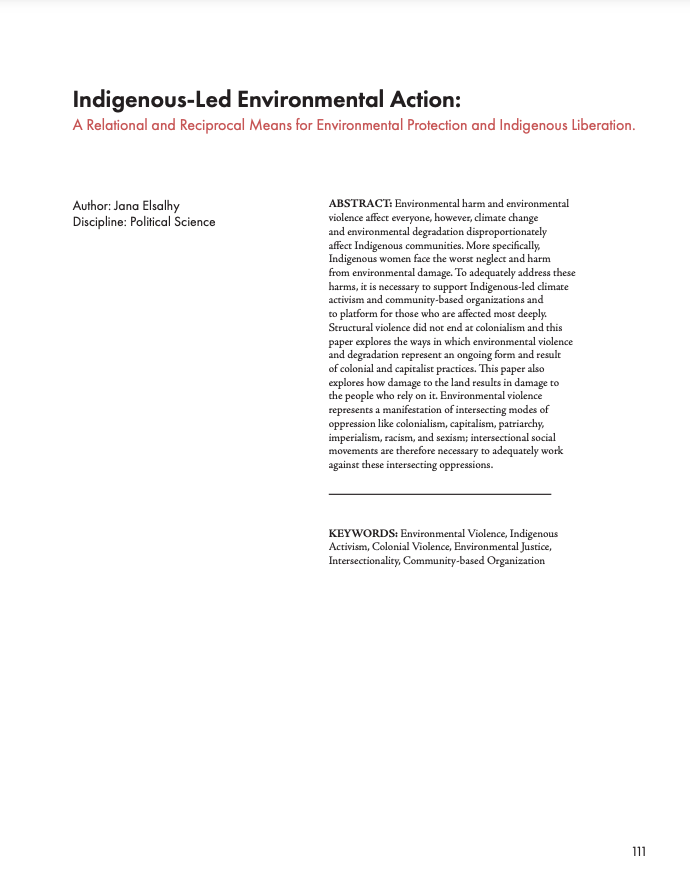Indigenous-Led Environmental Action: A Relational and Reciprocal Means for Environmental Protection and Indigenous Liberation
DOI:
https://doi.org/10.29173/crossings159Keywords:
Environmental Violence, Indigenous Activism, Colonial Violence, Environmental Justice, Intersectionality, Community-based organizationAbstract
Environmental harm and environmental violence affect everyone, however, climate change and environmental degradation disproportionately affect Indigenous communities. More specifically, Indigenous women face the worst neglect and harm from environmental damage. To adequately address these harms, it is necessary to support Indigenous-led climate activism and community-based organizations and to platform for those who are affected most deeply. Structural violence did not end at colonialism and this paper explores the ways in which environmental violence and degradation represent an ongoing form and result of colonial and capitalist practices. This paper also explores how damage to the land results in damage to the people who rely on it. Environmental violence represents a manifestation of intersecting modes of oppression like colonialism, capitalism, patriarchy, imperialism, racism, and sexism; intersectional social movements are therefore necessary to adequately work against these intersecting oppressions.

Downloads
Published
Issue
Section
License
Copyright (c) 2023 Jana Elsalhy

This work is licensed under a Creative Commons Attribution 4.0 International License.

